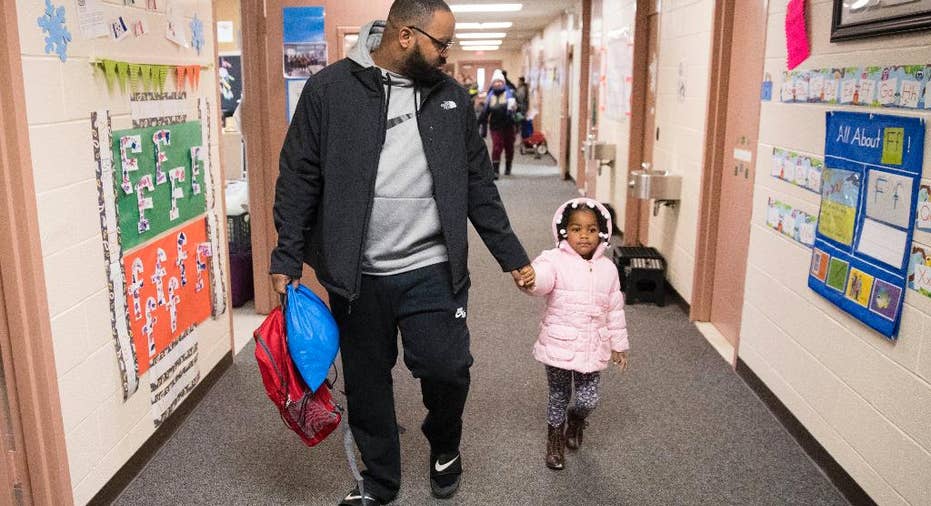Philadelphia launches pre-K program funded by soda tax

PHILADELPHIA – Thousands of Philadelphia toddlers have started 2017 in a citywide pre-kindergarten program as a new sugary beverage tax created to fund it hit store shelves.
The city launched the pre-K program this week with more than 2,000 children enrolled at 90 locations. The 3- and 4-year-olds don't have to come from families of certain income levels, but the free program targets high-need neighborhoods.
During the enrollment period this fall, officials received more than 3,700 calls. Over 2,200 families applied, and the city expects to have all of those applications completed by the end of January.
Three-year-old Makayla Grant finished her first week in the program Friday at SPIN Parkwood Pre-K in Northeast Philadelphia. Her mother, Lakesha, spends time reading with her and teaching her letters, colors and numbers. But she and her husband, Eric Grant, wanted Makayla to interact more with other children and develop her social skills.
Before going to pre-K, Makayla attended the local YMCA, which cost about $200 a month. Daycares can cost $200 a week. Eric Grant — who recently finished his active duty Army career and returned to Philadelphia from Camp Casey in South Korea — was surprised that the city had established a pre-K program. He called it "very beneficial."
"People aren't going to stop drinking soda, so they might as well use the money to do something beneficial for Philadelphia," he said. "Maybe more people will see that it's going to something positive."
The 1.5 cent per ounce tax on sodas and other sugary drinks is expected to raise $91 million over the next year.
But even as it gets the new program started, the city is looking at a lawsuit filed by the American Beverage Association over the tax. City attorneys have asked the Pennsylvania Supreme Court to hear the case.
Democratic Mayor Jim Kenney proposed the tax soon after taking office last year as an innovative way to pay for universal pre-K, one of his campaign priorities. Kenney sold the tax — which would also fund recreational projects across the city — by emphasizing the public good over public health.
More than 180,000 Philadelphians live in deep poverty, many of them children. The average household income for families who applied during the recent enrollment period is just under $35,000 a year. More than eight in 10 applicants live at or below the federal poverty rate.
The city council passed legislation creating the tax last summer. Kenney's office stresses that the tax is paid by distributorships. The companies, however, can then pass it on to consumers.



















